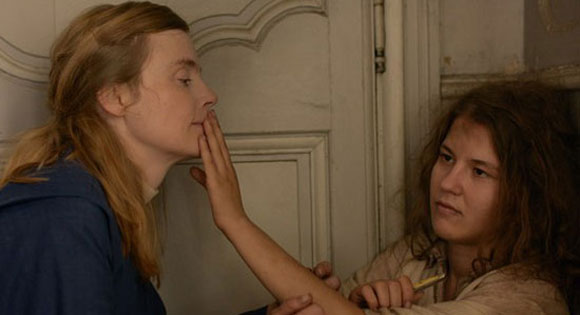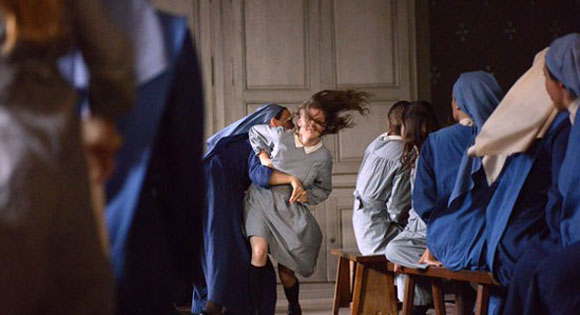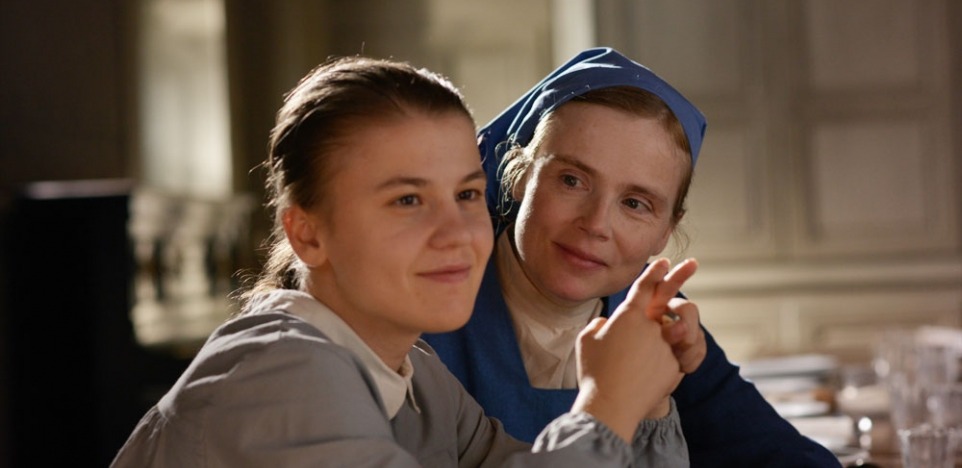"Compassion for me is just what the word says; it is 'suffering with.' It is an immediate participation in the suffering of another to the degree that you forget yourself and your own safety and spontaneously do what is necessary."
— Joseph Campbell
A strange phenomenon took place in European countries between 1544 and 1731 when ten wild children were reported. It was rumored that these human beings were raised by wolves, bears, and other animals. In 1799, a boy between the ages of ten and twelve years old was found after having lived wild in the forests of Aveyron in southern France. Jean-Marc-Gaspard Itard, a doctor at the National Institute for the Deaf and Dumb in Paris, was given custody of the boy and set out to transform him into a normal human being. The results of his efforts are charted in Francois Truffaut's movie The Wild Child. We recalled that movie when we saw this drama about another "wild" child, only this one is cut off from other people not because of who raises her but because of her disabilities. At the end of the 19th century, a baby born in rural France to a humble artisan and his wife is discovered to be blind, deaf, and dumb. Marie Heurtin (Ariana Rivoire) begins her remarkable journey to learn how to communicate five years after Helen Keller, whose struggle has been told in her autobiography and the 1962 film The Miracle Worker.

Marie's parents, unable to handle their daughter's crazy and wild behavior, decide to put her into the care of the nuns at the Larnay Institute where deaf girls and those with other maladies are taught sign language and then become sisters. Marie was very fortunate given the fact that most girls with her disabilities would be sent by their families to mental asylums.
"All beginnings require that you
unlock new doors.
The key is giving and doing.
Give charity and do kindness."— Rebbe Nachman of Breslav
While most of the nuns at the Larnay Institute are shocked by Marie's filth, her kicking, and her screaming; Sister Marguerite (Isabelle Carre) climbs the tree where this frightened outsider is perching and makes contact through her fingers. At the outset this nun is taken aback by how hard it is to connect with the 14-year-old who is walled away from all others due to her inability to see, hear, or speak.

"Can I see another's woe
And not be in sorrow too?
Can I see another's grief
And not seek for kind relief?"— William Blake
Although her Mother Superior (Brigitte Catillon) is skeptical about her ambitious plan, Sister Marguerite is determined to rehabilitate Marie through the use of sign language. One of the key elements in this slow and difficult process is the use of a small pocket knife which is the girl's favorite possession.
"After you had
taken your leave,
I found God's footprints
on my floor."— Rabindranath Tagore

Director Jean-Pierre Ameris draws out two exceptional performances from Isabelle Carre and Ariana Rivoire as the two lead characters. In publicity notes, he shares a few ideas he had in mind about the drama:
"The bond created between Marie and Sister Marguerite is nothing less than a nun experiencing something which, by definition, she is not intended to experience: maternal love. . . . The film I had in mind was a luminous one. I wanted to film Marie's hands touching animals, trees and faces, moving moments which turn out to be the invention of language and the story of liberation, a rebirth."
